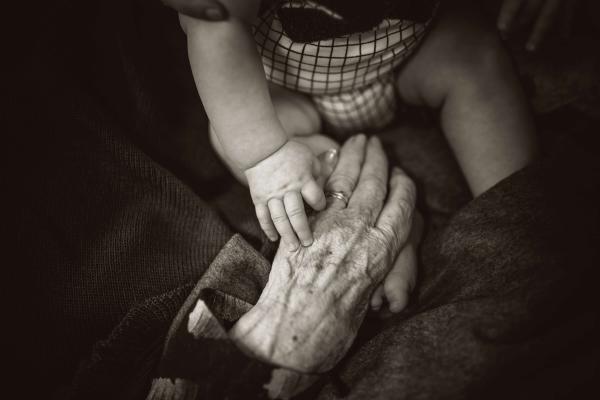Sep 9, 2019
On the Sunday Gran died, I baptized a little girl sixteen months old. And I was grateful for the unending grace that knows neither limit of time nor space. And, as the water spilled down her rosy cheeks, I remembered how Gran held my firstborn, how Gran held me when I was a child, how I held Gran’s hand for the last time, just a few days before.
Read the Full Article

Already a subscriber? Login
